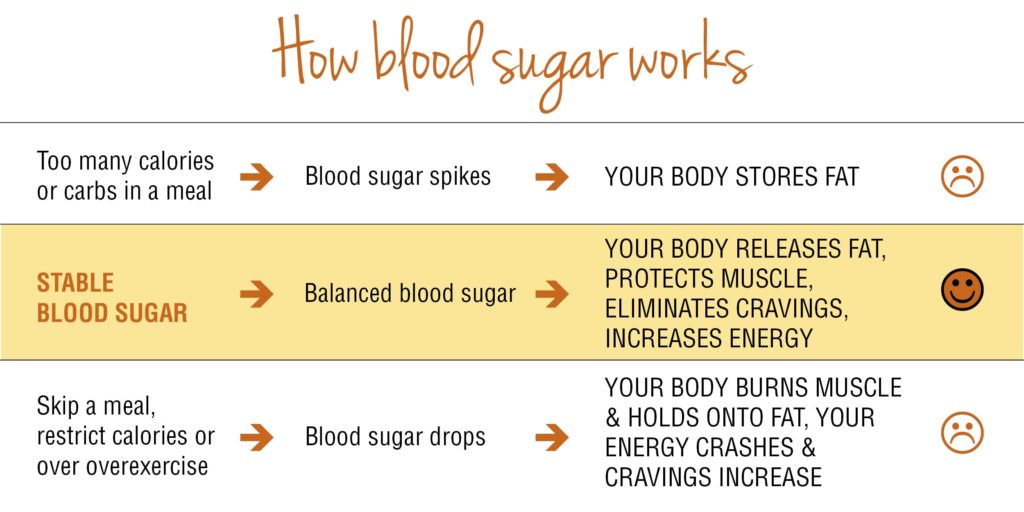|
Blood sugar & insulin imbalances are at the root of almost all major chronic illnesses. Yes, its true! Being insulin resistant puts a woman at a much greater risk for many conditions, such as:
Since insulin is a hormone, and all hormones communicate with each other, increased insulin levels disrupt every other hormone system in your body. When insulin isn’t doing its job, it’s nearly impossible to reduce the associated symptoms including; weight gain, difficulty losing weight, low energy levels, brain fog, food cravings, sleep issues, hot flashes, and night sweats. Lifestyle changes to lower insulin levels and correct insulin resistance can go a long way in keeping inflammation in the body low and helping restore hormone imbalance. What is insulin, anyway? Insulin is a hormone produced by your pancreas, and it plays an important role in metabolism. After you eat, your digestive system breaks down the foods you eat – mainly carbohydrates – into glucose, or sugar, which is then released into your bloodstream. With the help of the hormone insulin, glucose can absorb into the cells of your body to be used for energy or storage. Insulin is also important because it stops sugar from accumulating in your bloodstream. The more you eat, the more insulin your body releases to regulate your blood sugar and keep it within a healthy range. And then, what is Insulin Resistance?
If our bodies are constantly over producing insulin to combat the effects of excess sugars, carbohydrates and stress, our cells stop responding, or become resistant to insulin. When this happens, too much sugar stays in the blood and builds up, instead of being used by our cells, which can lead to major health problems. If you have insulin resistance, your cells will have trouble absorbing this glucose, and your body will require more insulin to function properly How can I tell if I’m insulin resistant? Body composition changes are usually the first tip off — a woman who was once more pear shaped develops more fat around her midsection and turns into more of an apple shape. Other symptoms are:
Can I reverse insulin resistance? Yes! The most common solution is to stop eating refined carbohydrates. Here’s a simple rule of thumb: if a grain was ground into flour to make a product like bread, pasta, or cereal, it is no longer a whole grain, no matter what the package says! Get your carbs from veggies like sweet potatoes and butternut squash. If you can tolerate beans and grains, stick to high protein grains like quinoa. By replacing carbohydrates with protein and fat, it helps the body become more responsive to insulin and balance blood sugar. Exercise is a terrific insulin sensitizer. HIIT training can work wonders here. Timed eating. Stop eating 3 hours before bed and have a 12-14 hour fast between dinner and breakfast. If you have dinner at 6 and are done eating at 6:30 PM then wait until 8:30 AM to eat again. Remember, it’s not sugar itself that’s the problem – it’s the amount and type of sugar consumed. Consuming too much sugar can overwhelm the body over time, to the point where it can no longer handle even small amounts of sugar efficiently. Comments are closed.
|
HealthstyledHealth | Habits | Hormones Categories
All
Archives
April 2023
|



 RSS Feed
RSS Feed